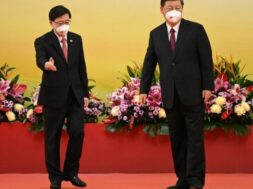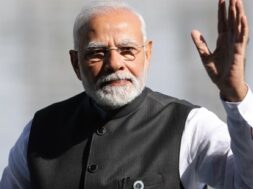
Brain drain: Hong Kong apes Singapore to attract global talent, investment
Virendra Pandit
New Delhi: Until two decades ago, Hong Kong was a global city, a democratic island of wealth and knowledge attracting talent and investors from all over the world. When the British returned it to China in 1997, it started losing both brain and wealth as China backtracked on its promise of “One Country, Two Systems” it had assured Hong Kong with and crushed its democracy step-by-step.
In the last few years, as Beijing jackbooted its pro-democratic movement to homogenize Hong Kong with the rest of China, it lost its global status and became an ordinary Chinese city increasingly controlled by police.
Fearing a further slide, Hong Kong’s China-appointed Chief Executive John Lee, a former police officer-turned-politician, unveiled an ambitious incentive plan to woo talent back to the city and ease its housing woes to revive its status as a thriving global financial hub, the media reported on Wednesday.
Lee, who became the CEO in July, said he would cut property duties for non-permanent residents and ease visa rules to reverse a brain drain caused by isolationist Covid policies since 2020. His proposals to make the property more affordable came after Beijing’s call to fix the business hub’s infamous housing market, which China claims were causing ‘political unrest’ in the city.
Already, Hong Kong’s economy has suffered much. Its gross domestic product (GDP) is projected to contract for the third time since 2019 as fallout from continuing Covid restrictions, rising interest rates, global inflation, and Russia’s war in Ukraine.
“The world is undergoing profound changes unseen in a century,” Lee said, citing some of those factors as having “weakened the growth momentum of the global economy.”
Seeing an opportunity in Hong Kong’s decline, the Southeast Asian city-state of Singapore is attracting talent and business away from the Chinese city, offering a new visa program and a faster, more aggressive rollback of Covid restrictions, the media reported.
Lee’s fresh offer includes a two-year visa program for those bringing in at least HK$2.5 million (USD 318,480) annually, which would let them explore opportunities in Hong Kong without being subject to any quota.
Recent graduates of the world’s top 100 universities will also be eligible for work visas, Lee said, adding the city will also suspend the annual quota of its current program for skilled talent and extend the limit of stay for non-local graduates from one to two years.
His proposal came two months after Singapore announced its own five-year work visa program for foreigners earning S$360,000 (USD 253,530) annually, citing a hypercompetitive battle for global talent.
The changes offered in property rules included a plan to refund extra stamp duties that non-permanent resident property buyers have to pay after staying in the city for seven years.
Hong Kong’s property market is one of the world’s most expensive, and the sector has been slumping because of rising rates and a population outflow.
The easing or lowering of stamp-duty rates for non-local buyers could attract demand, particularly from mainland Chinese interested in luxury residential properties.
But these efforts are unlikely to attract many non-Chinese, as Lee said, President Xi Jinping’s Sunday speech at the 20th National Congress of the Communist Party of China (CPC) would serve as his “blueprint” for governing Hong Kong. It only means Beijing would further curb pro-democracy activists in Hong Kong.
In his address, Xi credited a national security law enacted in June 2020, along with an electoral overhaul to ensure governance under approved “patriots”, with restoring order to the city. The Chinese leader also stressed the “One Country, Two Systems” governance model in Hong Kong “must be adhered to over the long term,” but few believed his rhetoric.
National security has been a key theme of policy addresses in recent years, and Lee made clear it’s still a priority. He emphasized the city must remain vigilant to threats and recommitted to implementing Hong Kong’s own local security law, Article 23, setting no timeframe for achieving this.













